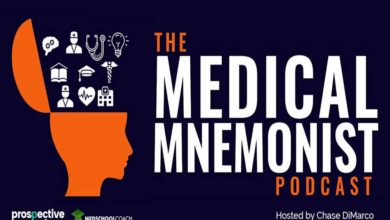Dr. Loretta Breuning describes brain chemistry and how students can use this knowledge to benefit their studies.
On covering memory, it’s useful to have a better grasp of neurotransmitters and how they affect our memories. Today we are joined by Dr. Loretta Breuning of the Inner Mammal Institute to help describe brain chemistry and how students can use this knowledge to benefit their studies.
Intro (Add time)
1:23 Neuroscience vs Neuro-memory Studies
4:15 Setting Your Study Session Based on Neurochemistry & Setting Expectations and Rewards
7:25 How to Set Intrinsic “Happy” Reward Systems for Medical Students and Graduate Learners
11:30 Early Reward Circuits and Early Pain Circuits: How Childhood Experiences Shape Current Motivations
16:48 Optimizing Self-Motivation Behaviors: Chunking Tasks into Small Successes
21:45 Types and Strengths of Different Self-rewards to Motivate Study Behaviors: Get those “Happy Chemicals” Going!
26:25 Why Social Comparison & Worrying About Other’s Scores is so Detrimental
29:00 Just 3 Wishes
Some of Dr. Breuning’s Books:
- Habits of a Happy Brain
- Tame Your Anxiety
- Status Games
Recommended Resources
For more information, visit the Inner Mammal Institute. You can Dr. Breuning’s funny animations, reading list, and the happy power examples. You can also learn more by following the Happy Brain Podcast.
